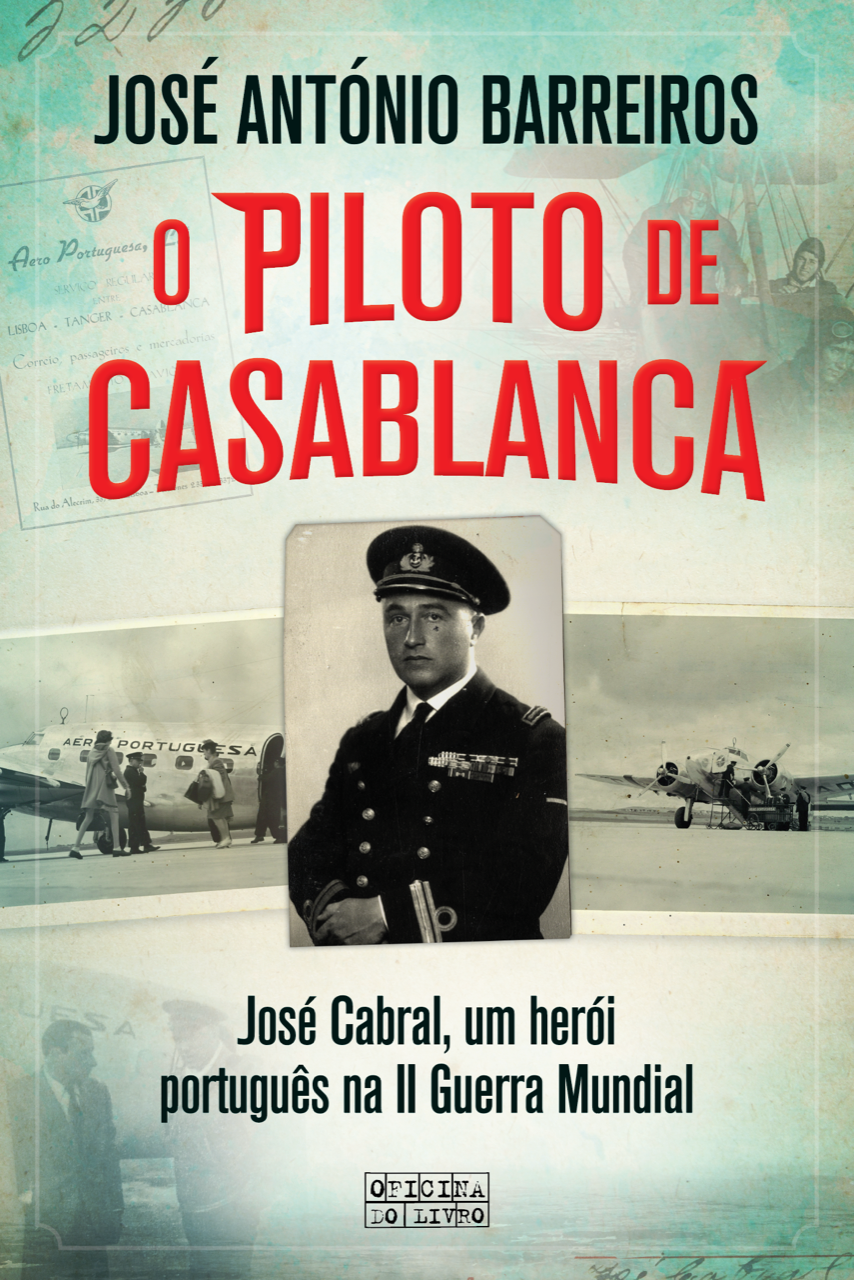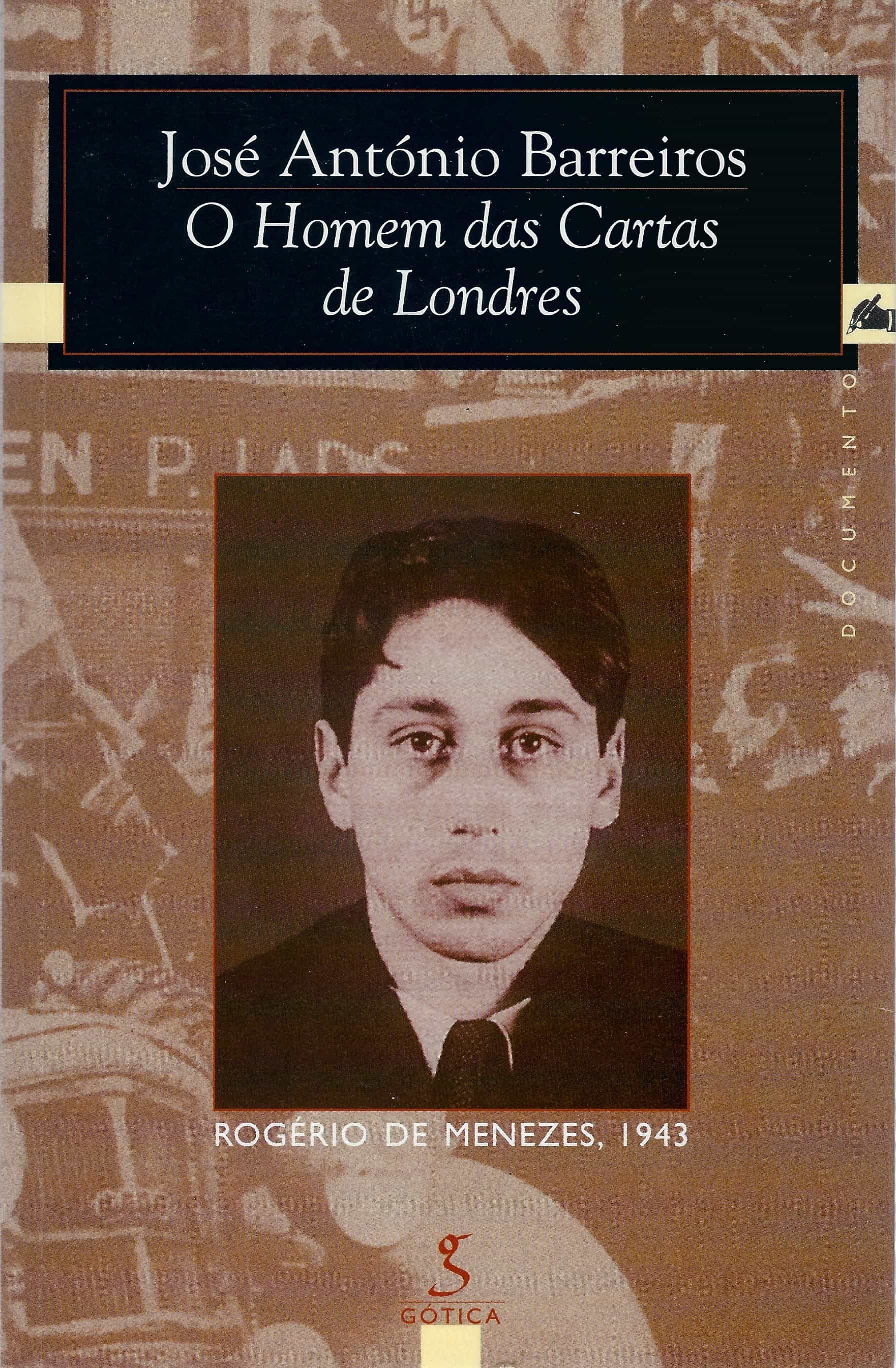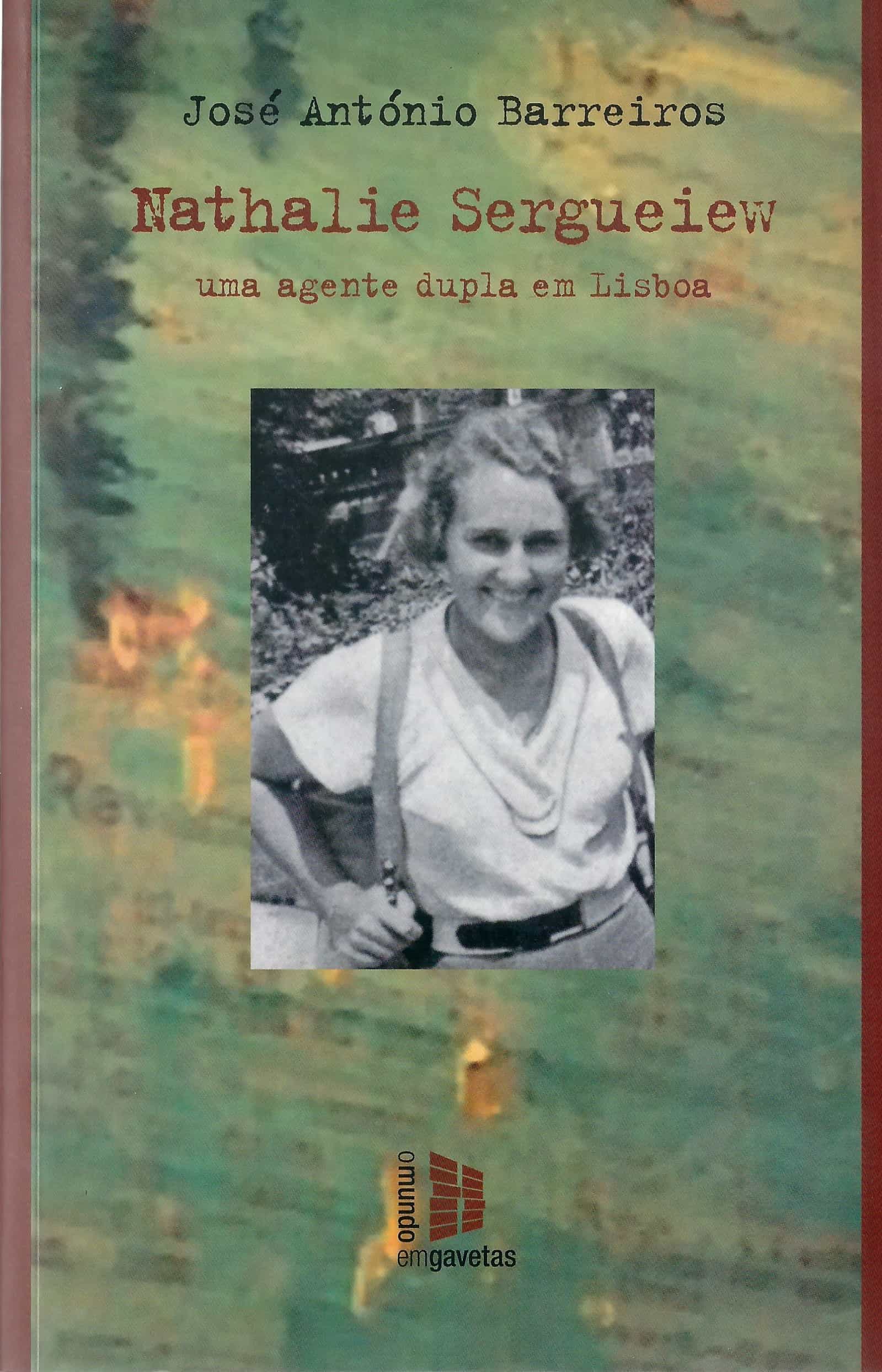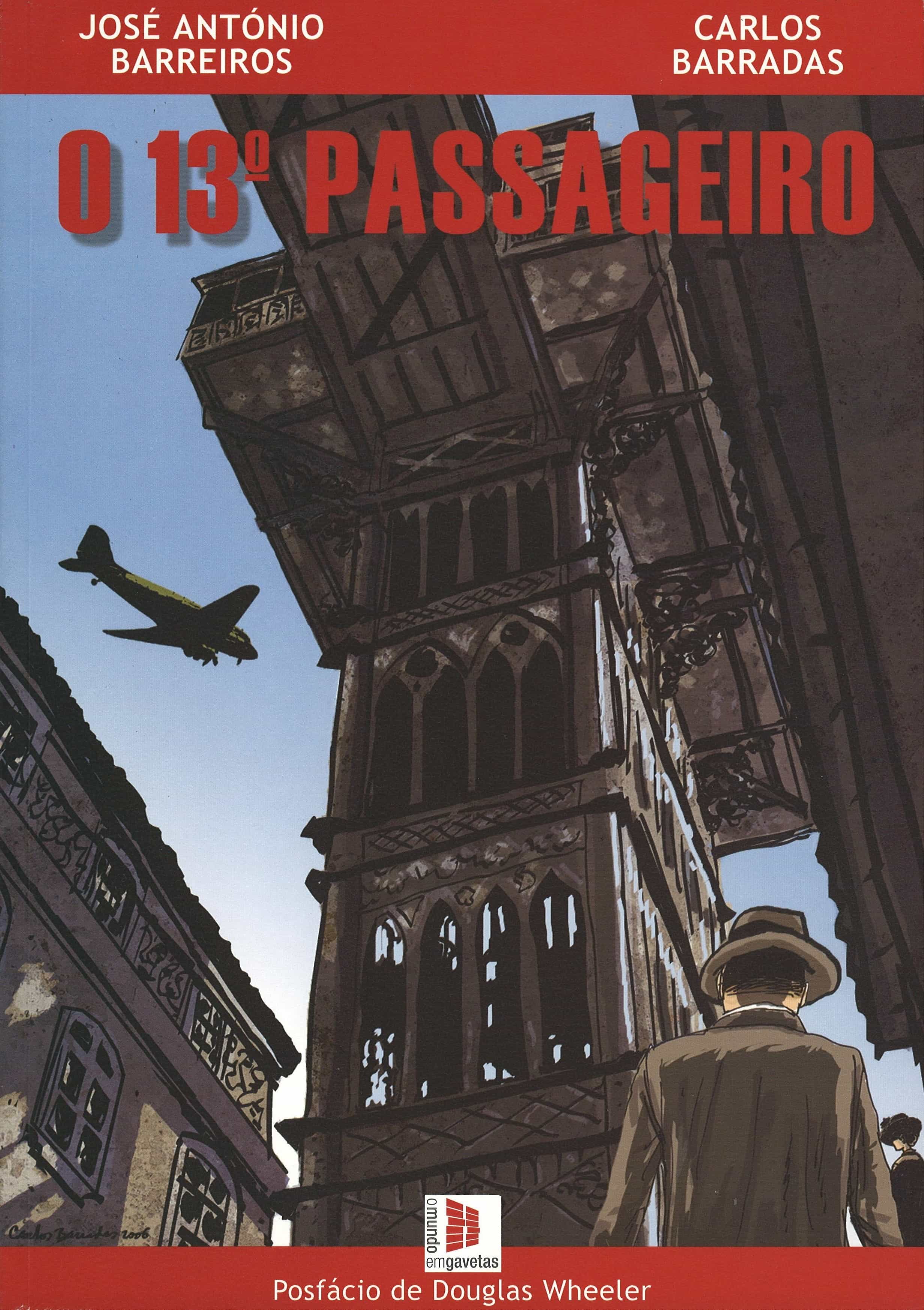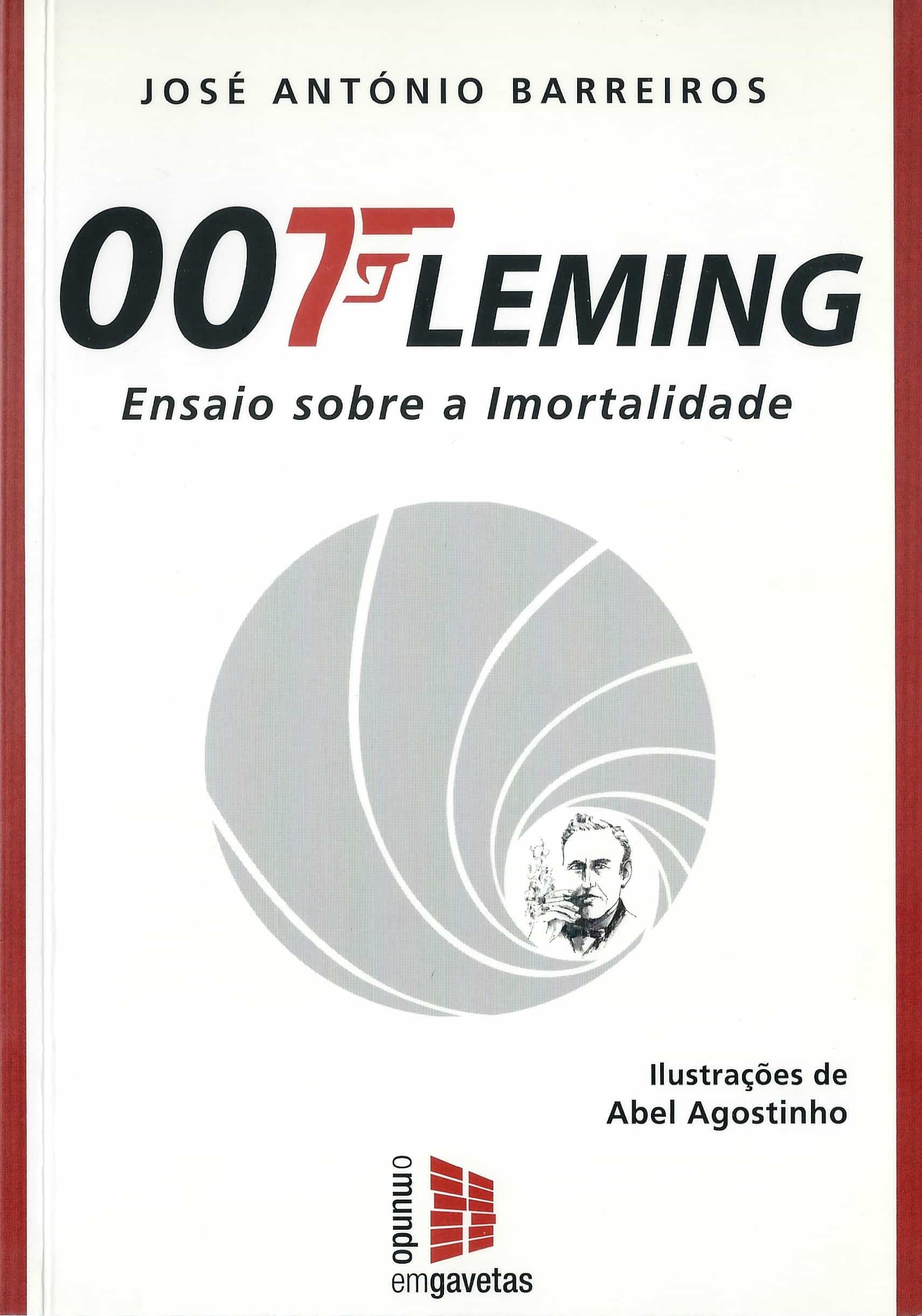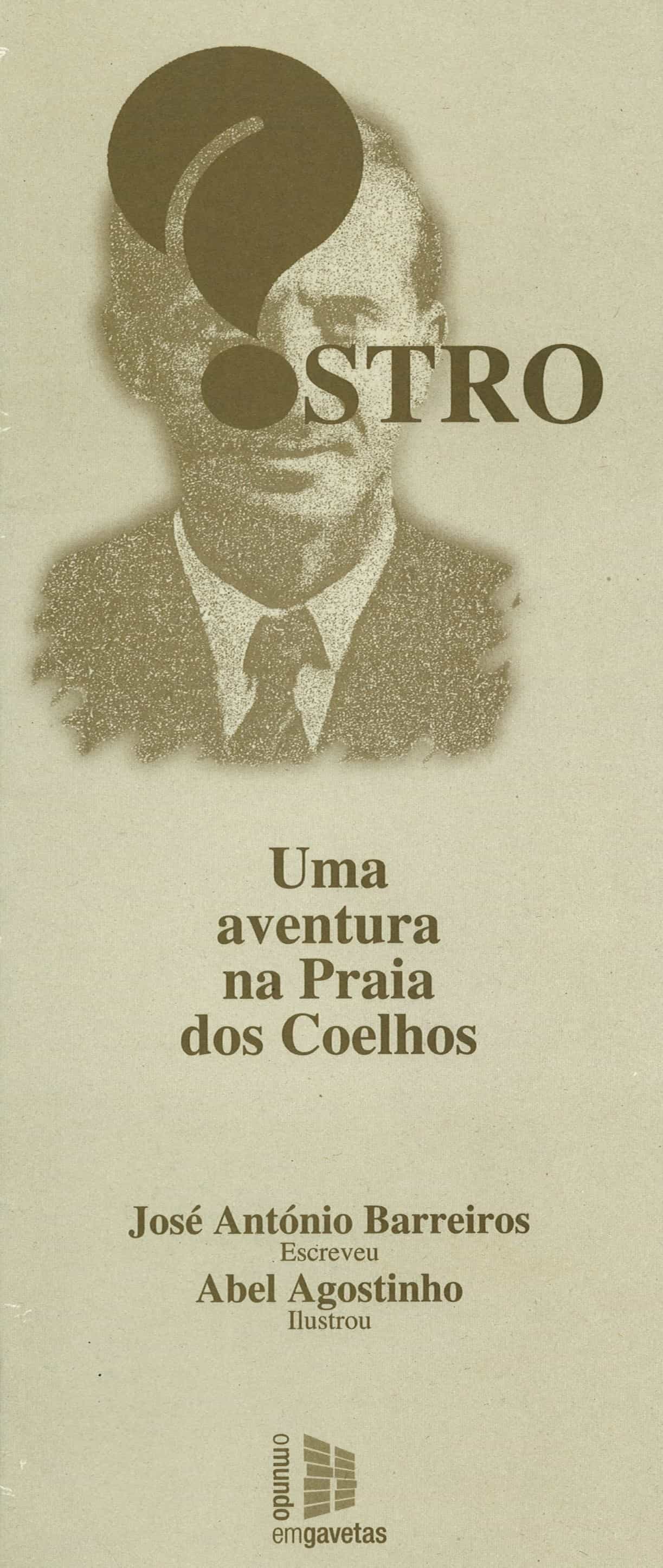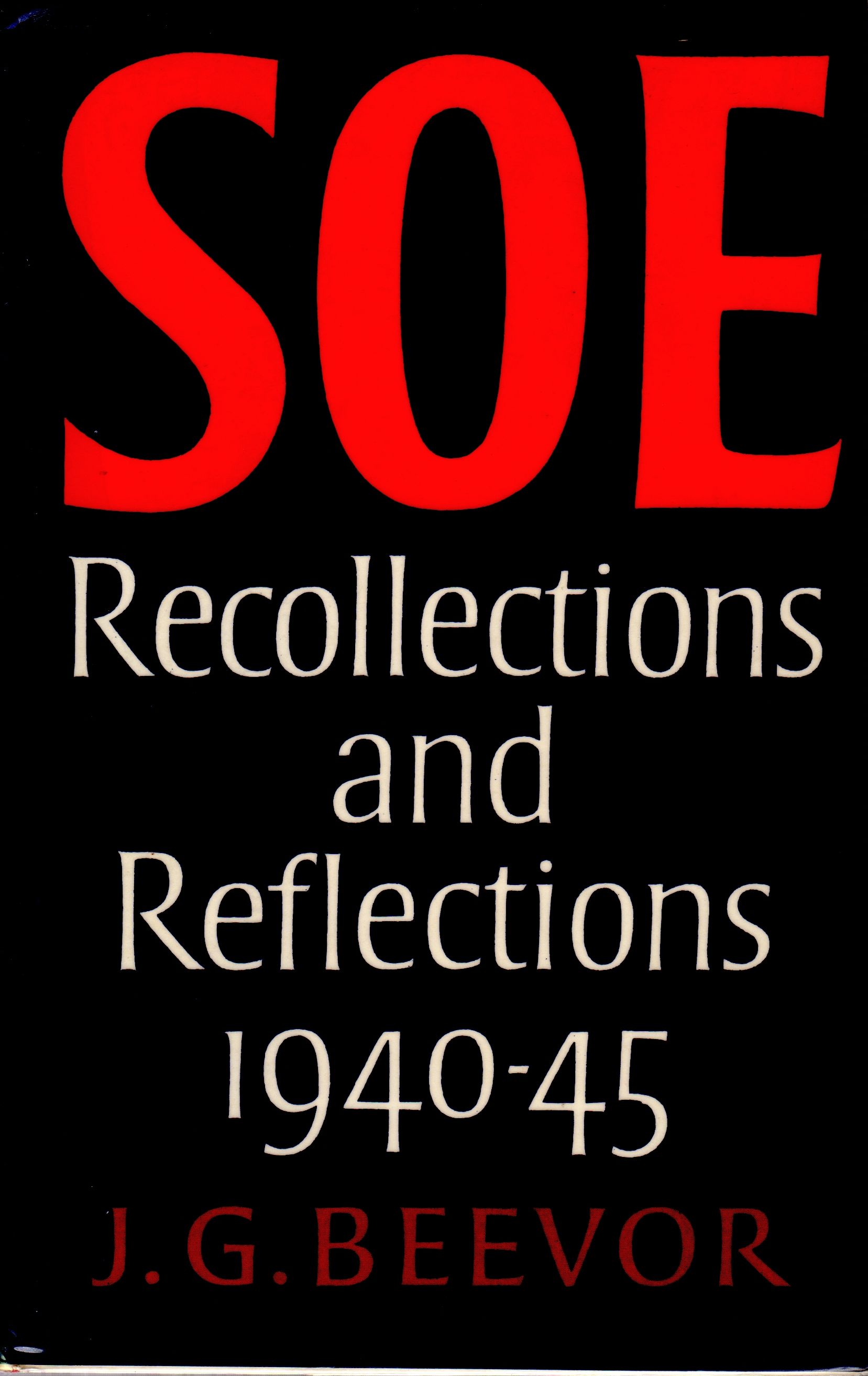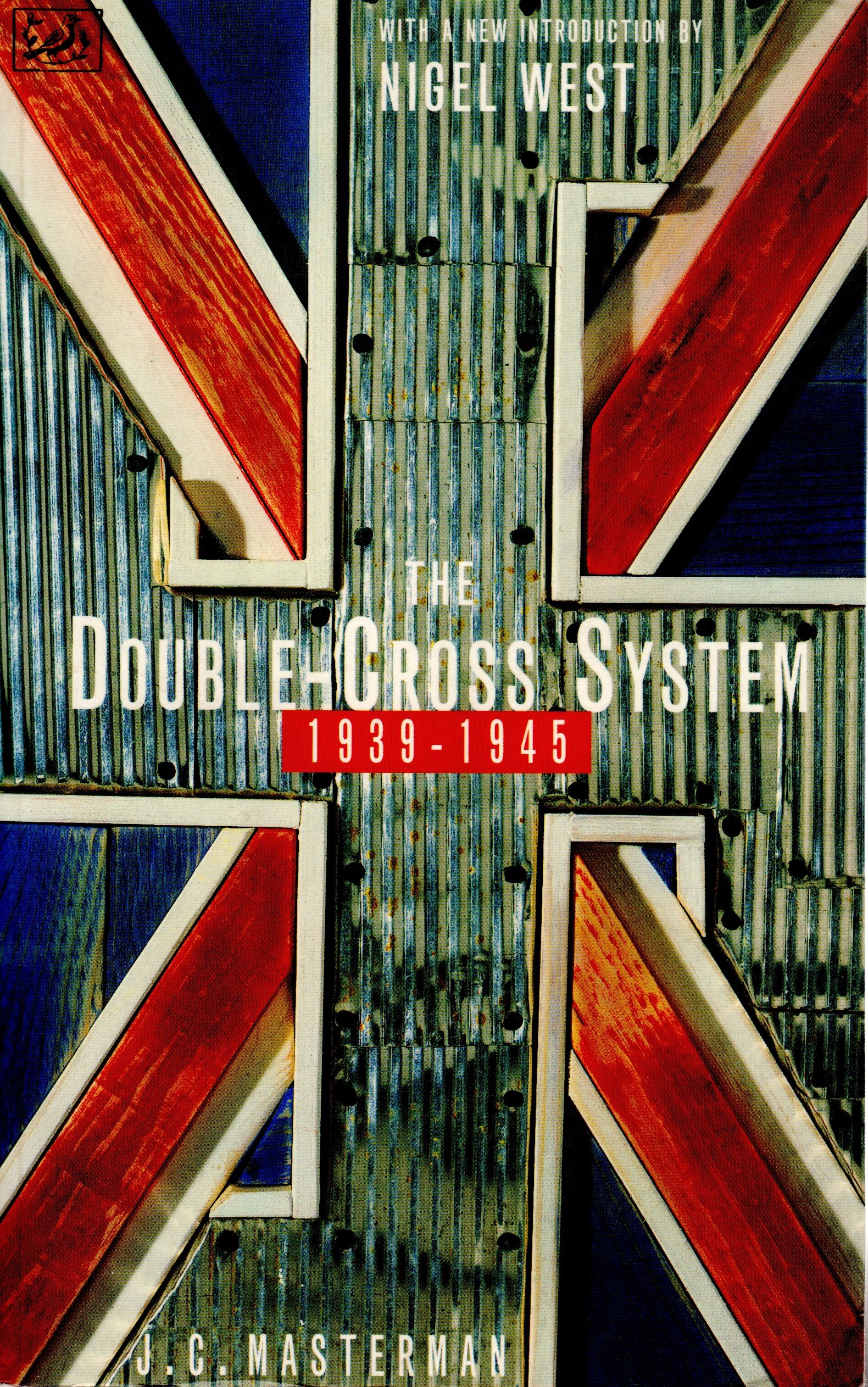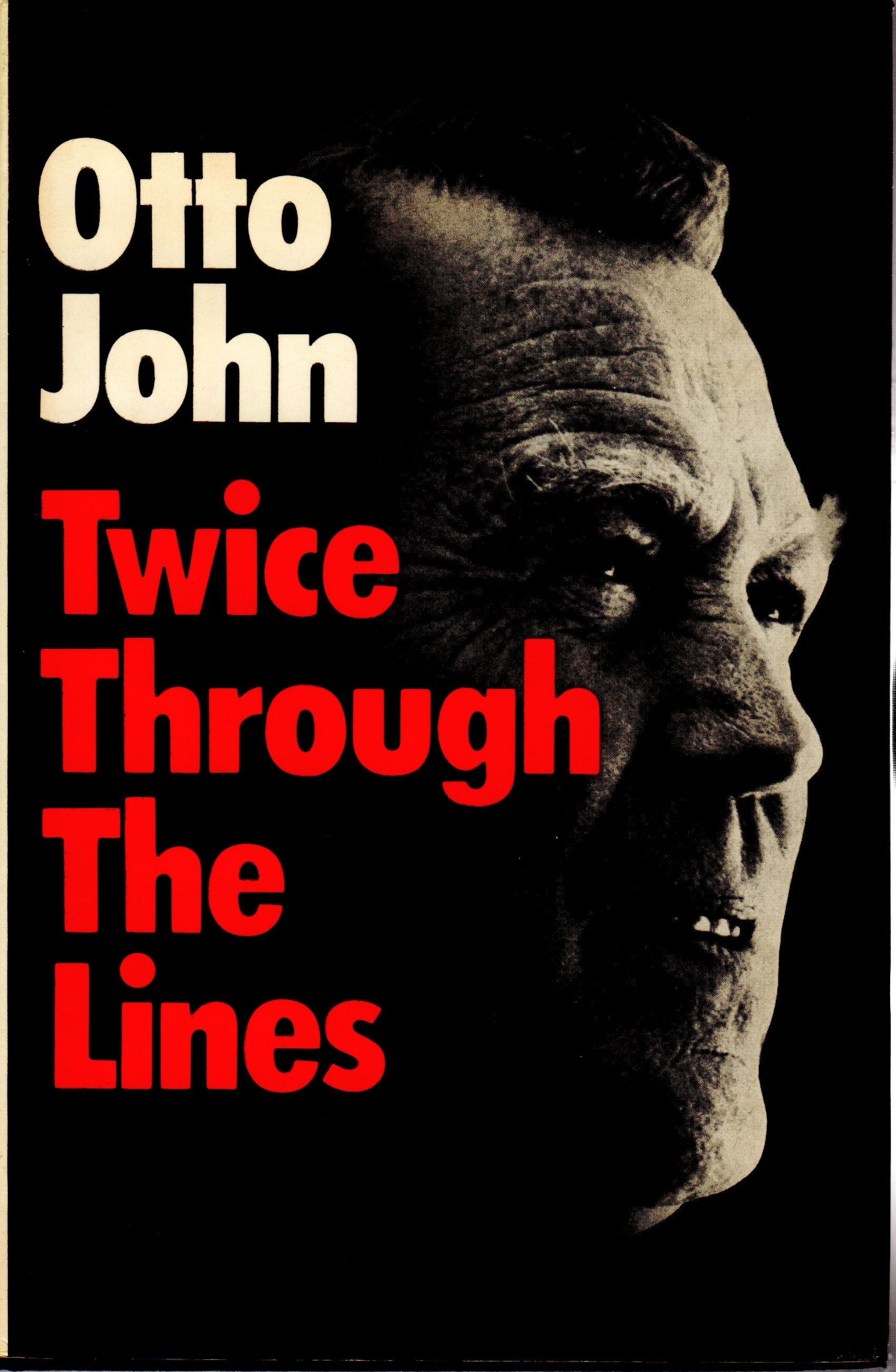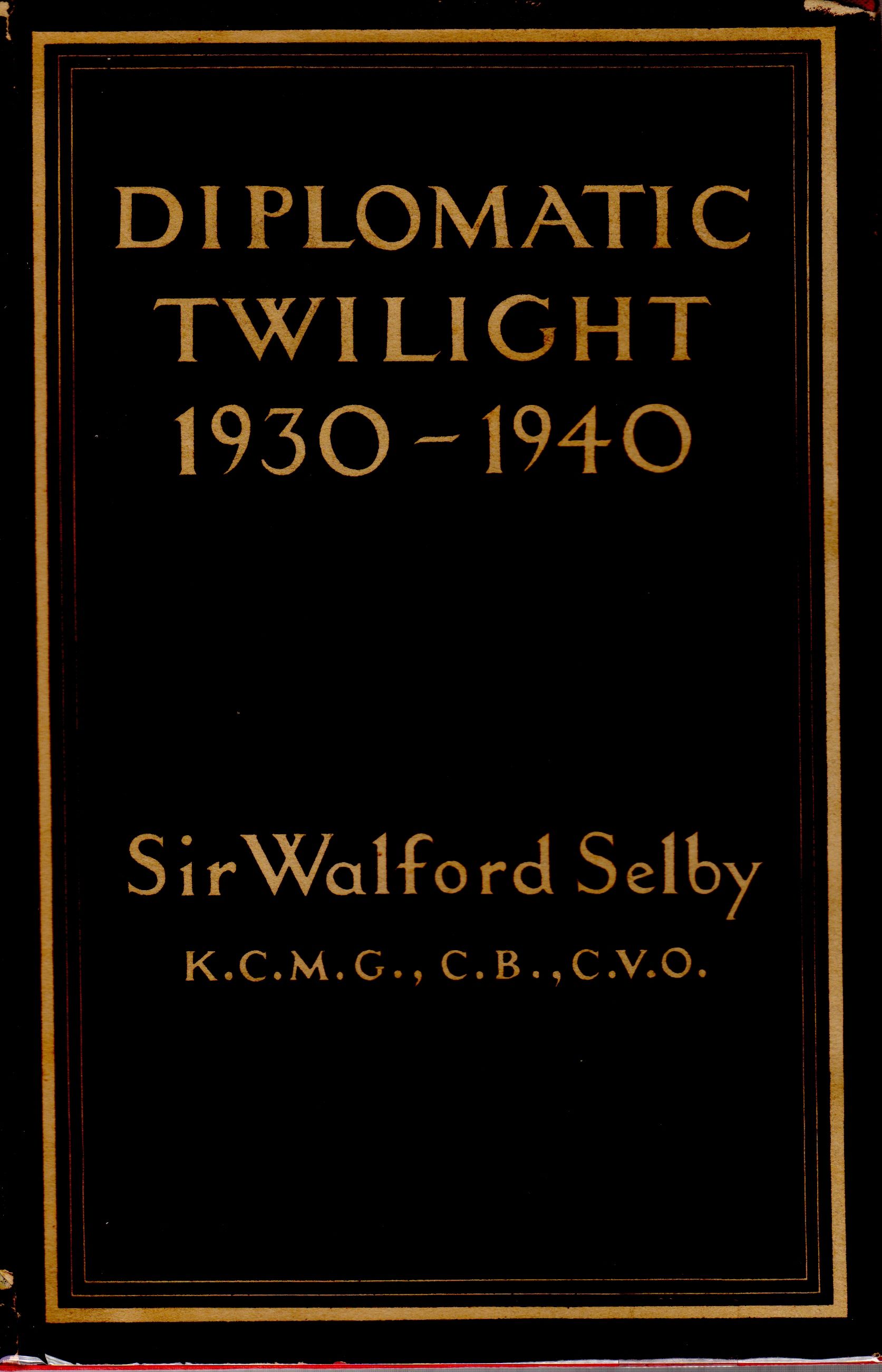O Piloto de Casablanca
José Cabral, nasceu em 1897 na aldeia de Casssurães, Mangualde.
Ingressou na Marinha, tendo-se distinguido na Aviação Naval, tendo sido colocado em São Jacinto, Lisboa e Macau. Levou a cabo, neste território, missões de salvamento de pilotos caídos na China, tendo sido por isso condecorado com a Legião de Mérito…
A Lusitânia dos Espiões
This was my first book on the secret war, a collection of articles previously published in the press, in the first years of my research. Most of them are now outdated and need factual revision. They were mostly based on the concept of “spies”, which I have abandoned in my subsequent research, to more clearly reflect the fact that its focus is the secret war, not the glamorous stories of some of its agents.
O Espião Alemão em Goa
This book, now in its second edition, is an attempt to review Operation Longshank, an SOE attack in February 1943 on German and Italian merchant ships harboured in Marmagoa. The operation was a fiasco, and the members of the crew that sunk the ships and set fire to them were unjustly submitted to a criminal trial, while the Portuguese authorities, and above all Governor José Cabral, covered up the action. It was Salazar’s intervention that allowed a more reasonable sentence in court, but even so without admitting that the British action had been unlawful, as the ships were under the protection of our neutrality.
O Homem das Cartas de Londres
In 1943, having been recruited by the Axis in Lisbon, Rogério de Menezes worked as a clerk in the Portuguese Embassy in London, with Ambassador Armindo Monteiro. Through letters sent by diplomatic bag, he concealed messages to his German and Italian controllers, written in invisible ink. Unlawfully violating the immunity of the Portuguese official diplomatic courier, MI5 was able to charge him with treason. Sentenced to death, his hanging was secretly pardoned by King George VI after hard negotiations with the Portuguese government, with direct intervention of Oliveira Salazar. “Kim” Philby followed his trial and was puzzled by the severity of the penalty compared with the small value of the information he was sending. The case was more serious than that: a political and diplomatic plot involving Portuguese neutrality and the freedom of foreign intelligence networks in Portugal was at stake. This book was written with a partial revision from Rogério de Menezes after I found him in a small city in the centre of Portugal.
Uma agente dupla em Lisboa
Recruited by the XX Committee – which codenamed her “agent Treasure” – after offering her services to the British through Kenneth Benton, in the Passport Control Office in Madrid, Russian-born Nathalie Sergueiew was exfiltrated to London. She had been previously recruited by the German Secret Service, and worked under the control of major Emil Kliemann, from Luft Eins. As a double agent, she was part of the network that misled the III Reich about the landing in the North Front. In order to receive a radio set for wireless transmission, she came to Lisbon in July 1944, from where this book starts to follow the story of her life: an extraordinary life of a courageous and independent woman.
O 13.º Passageiro
This book follows the fate of KLM/BOAC Ibis Flight from Lisbon to Bristol, the aircraft that was sunk by Luftwaffe in the Biscay Bay. The narrative focuses on one of the passengers, the British stage and film actor Leslie Howard, but does not disregard the fact that other relevant persons were aboard, notably Tyrell Shervington from Shell Oil, who was an important member of the SOE network in Portugal and could be the target of the attack.
Through the text and the accompanying comic strips, which provide a visual narration of the major events in this story, the book leads to the conclusion that the Brits knew through ULTRA [German Enigma deciphering] that the Germans would attack that carrier of the Lisbon Line but, in order to keep it a secret, did not prevent the flight.
00 Fleming
The similarities between former British NID officer writer Ian Lancaster Fleming and James Bond are the theme of this book. It’s an essay based not only on the biographical and psychological traits of Fleming’s own person that were reflected in agent 007 but also on all the peculiarities of his occultist and esoteric knowledge, which constitute the most intriguing aspect of the author disseminated in his books.
O Homem da Praia dos Coelhos
A small narrative of an incident – probably no more than a legend – involving British Ambassador Sir Ronald Campell swimming in Praia dos Coelhos, near Setúbal, and Avis spy Paul Fidrmuck [codename Ostro] accessing the codebook that the former kept in his jacket and neglected to keep away from enemy eyes. It might be a legend, but it is one worth telling.
Traição a Salazar
John Beevor, a lawyer from one of the Magic Circle law firms, was recruited by the SOE in 1940 to implement a clandestine network in Portugal, in case Operation Felix [German invasion of Iberia targeting Gibraltar] would be set into action. The plan was traced by the Secret Department of Legião Portuguesa, a paramilitary organisation, which offered to cooperate with him. PVDE, the political police, was shadowing the plot and reported it to Olivera Salazar. A serious diplomatic incident arose, and the Alliance between England and Portugal was in danger. After a meeting between Ronald Campbell, British Ambassador in Lisbon, and Oliveira Salazar, the network was dismantled and those Portuguese who had been recruited were imprisoned in Tarrafal, a concentration camp in Cape Vert. The events concerning the organisation and dismantlement of the network and the political incident involved are narrated in this book.
My Library
Sir David Eccles, MEW in Portugal
Author: Sir David MacAdam Eccles [18.09.1904-24.02.1999]: Ministry of Economic Warfare [a939-1940], Ministry of Production [1942-1943], adviser to the Bristish Ambassadors at Lisbon and Madrid [1940-1940]
Genre: personal account [letters to his wife Hon Sybill Dawson]
Pages: 432, and index
Publisher: The Bodley Head, 1983
References: Lisbon [97, 105-106, 114, 157, 172-173, 293-295, 329, 413], Azores [282], Blockade and Portugal [98, 228, 245-246, 289-290, 297, 346-347], Ronald Campbell [99, 280-281, 220, 246-247, 292-293, 3333-334, 357-8, 377, 385], Marcus Cheke [396-397], Hugh Dalton [141-142, 262-263, 313, 341, 344, 349], Ian Fleming [244, 283, 303], Nicolas Franco [104, 119, 121, 125-126, 304-305, 336, 422], Samuel Hoare & Lisbon [126, 202, 2219, 348], Madeira [393], Mozambique [375], Propaganda [37, 58, 145, 152], Salazar [97-99, 107, 109, 110-114, 116, 119, 141-143, 171, 176-177, 221. 228, 2455-247, 281, 292-293, 30-308, 329, 336, 351-355, 358, 367, 372, 375, 377], Walford Selby [97, 99, 105, 110-111, 119, 123, 208], Timor [332, 337-338, 358, 415], USA [98, 290, 293], Duke of Windsor [121,-122. 128, 132, 133, 139-1940, 382]
John Beevor, SOE in Portugal
Author: John Grosvenor Beevor [1 March, 1905 – 26 February 26, 1987], fficer served with H Section, Special Operations Executive in Portugal, 1941-1942; served as assistant to Sir Charles Hambro at Headquarters, Special Operations Executive, Baker Street, London in GB, 1942-1943; served as assistant to General Stawell in Egypt and Italy, 1944. Father of the historian Anthony Beevor.
Genre: personal account
Pages: 270, with bibliography, eight appendices and index
Publisher: The Bodley Head, 1981
References: Lisbon [30-43, 132-133], Sir David Eccles [33, 34], Goa [217], MI9 [23, 35, 75, 131, 174, 224], OSS [78-93], Sir Ronald Campbell [32, 40-41], Sir Samuel Hoare [31], Salazar [39-41], Somerseth Maugham [16], Mikhail Terestchenko [36]
Sir John Masterman’s account of XX
Author: Sir John Cecil Masterman [12 January 1891 – 6 June 1977], Vice-Chancellor of the University of Oxford, Chairman of the Twenty Committee, which ran the Double-Cross System, controlling double agents in Britain.
Genre: personal account
Pages: 203, with two appendices and index
Publisher: Pimlico, Great Britain, 1995, with a forword by Norman Holmes Pearson [1971] and new introduction by “Nigel West” [1st edition Yale, 1972]
References: Agents in Lisbon [76, 118, 120, 130], Garbo [ix, xiii, 16, 28, 109, 114-117, 125, 142-3, 147, 148-149, 152-154, 156-157, 168, 173-175, 178 ], Karsthoff (German Secret Service)][95] Snow and Celery [90-92], Tricycle [138-140, 152-153]
Otto John, “The Boomerang”
Author: Otto John [19 March 1909 – 26 March 1997] legal adviser Deutsche Luftansa [Madrid]. Involved in the plot to assassinate Adolf Hitler [July 1944]. Exfiltrated via Lisbon to England, with Section V Mi6 and PVDE help . First head of West German Bundesamt für Verfassungsschutz
Genre: autobiography
Pages: 340, with bibliography and index
Publisher: Macmillan, Great Britain, 1972, with an introduction by H. R. Trevor-Roper [translation of the German original Weimal kam ich heim, Econ Verlag, 1969]
References: Azores [46], Iberia [79, 81, 95], Lisbon [pages 97-98, 122, 129, 139, 145, 158, 160, 162-163, 165-167, 276, 310, 313,-314], Portugal [pages 99, 166], Rita Winsor [13, 166,-167, 172, 314]
Selby, British Ambassador To Portugal
Author: Sir Walford Harmood Montague Selby [19 May 1881 – 7 August 1965], Ambassador to Portugal [1937-1940]
Genre: autobiography
Pages: 110, with bibliography and index
Publisher: John Murray, Great Britain, 1953
References: My appointement do Lisbon [pages 83-94], The Struggle with Germany in Portugal [pages 103-115], 1940 In Portugal the Termination of My Mission [pages 116-129]

